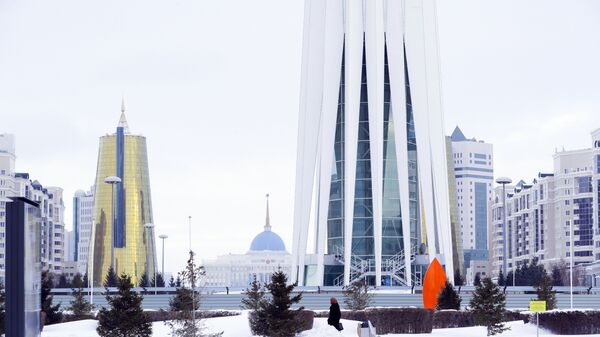HMEIMIM (Syria), (Sputnik) — The third round of Astana talks on the Syrian conflict started in the Kazakh capital on Tuesday without the participation of the Syrian armed opposition.
Bashar Jaafari, head of the Syrian government delegation to the Astana talks, said on Wednesday that there would be no extension of the talks. He also accused Turkey of being responsible for the opposition's demarche.
Russia, Turkey and Iran, the guarantors of the Syria ceasefire agreement, adopted a joint statement at the conclusion of the talks, reaffirming their commitment to the Syrian peace process.
"Our position is that in Astana negotiations with representatives of warring factions can be conducted simultaneously on the constitution," Slutsky said on a visit to the Russian center for reconciliation of opposing sides with Parliamentary Assembly of the Council of Europe (PACE) delegates.
Slutsky said negotiators could make headway on the Syrian constitutional process at the next round of Geneva talks on March 23, including looking into Moscow’s proposal to form a task force that would draw up the new constitution for Syria.
"We expect a detailed mechanism of how this committee should work to be mapped out in the coming months so that it can get down to work," the lawmaker said.
Russia presented its vision of a Syrian draft constitution at intra-Syrian talks in Kazakhstan’s capital of Astana last January. It suggests removing the word "Arab" from the country’s name and expanding parliamentary powers.
On March 15 and 16, 2011, the Syrian authorities suppressed demonstrations in Damascus against President Bashar Assad. Since then the country has been suffering from the civil war that erupted between government troops and numerous opposition and terrorist organizations, such as Daesh and Jabhat Fatah al Sham (formerly known al-Nusra Front), both prohibited in many countries, including Russia.
Extremists from many counties have been backing terrorist organizations in the Middle East, either recruiting new fighters in their countries of origin or sending money and weapons to the crisis-torn states of the region.



